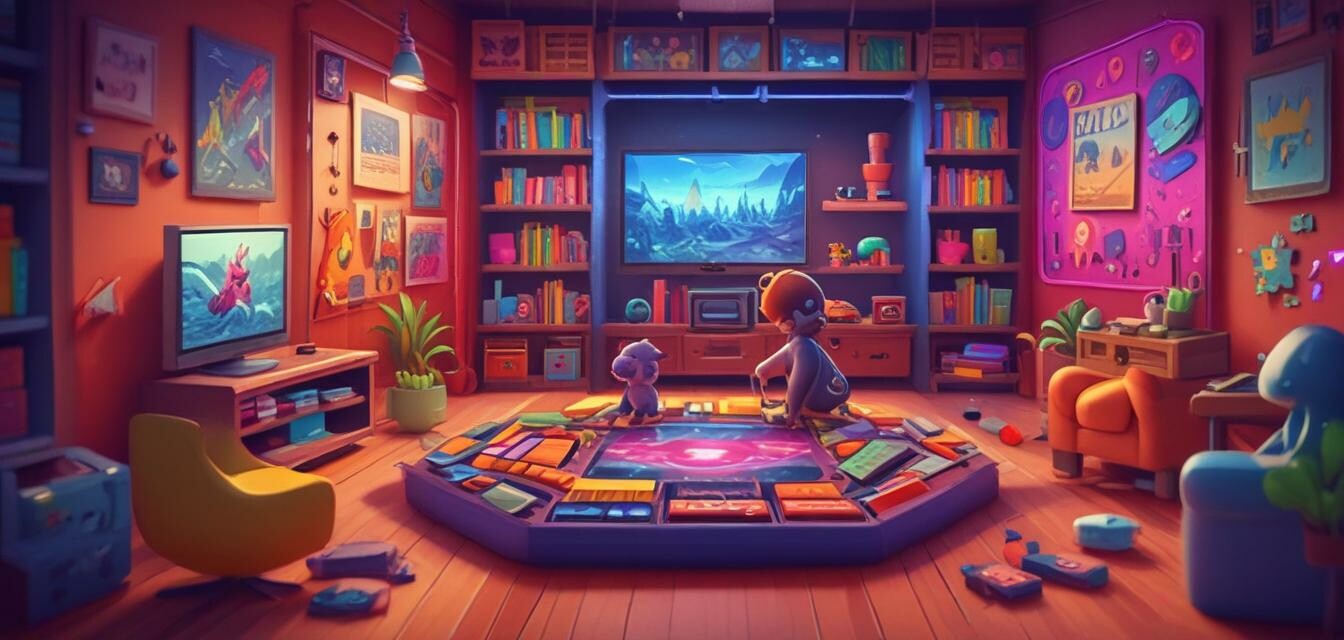
The Rise of Educational Games: Engaging Learning for Kids
Key Takeaways
- Educational games provide interactive and engaging learning experiences for children.
- They enhance cognitive skills, problem-solving abilities, and creativity.
- The gaming industry is increasingly prioritizing educational content for younger audiences.
- Parents and educators should actively explore the benefits of incorporating these games into learning environments.
- Staying informed about trending educational games can lead to better choices for kids' growth.
In today's digital age, the fusion of technology and education is transforming the way children learn. Among the many innovations in educational tools, educational video games are gaining significant traction. These games are designed not just for entertainment but also to enhance learning outcomes for kids of all ages. Let's dive into this fascinating trend and explore why educational games are proving to be beneficial for children's development.
Benefits of Educational Games
| Benefit | Description |
|---|---|
| Engagement | Educational games capture children's interest, making learning fun and interactive. |
| Cognitive Development | They promote critical thinking, problem-solving skills, and creativity. |
| Motivation | Game-based learning encourages children to take initiative in their learning process. |
| Skill Reinforcement | These games reinforce knowledge through practice and repetition in a fun context. |
| Social Skills | Many educational games encourage teamwork and collaboration among players. |
The Growth of Educational Video Games
The educational game sector is growing rapidly due to several contributing factors:
- Technological Advancements: Innovation in graphics and interactive technology enhances the learning experience.
- Increased Demand: Parents are seeking unique and effective ways to educate their children.
- Educational Integration: Schools are beginning to incorporate educational games into their curriculum.
Notable Trends in Educational Gaming
Here are some remarkable trends shaping the future of educational games:
- Gamification of Learning: Turning educational goals into game-like missions motivates kids to learn.
- Mobile Learning: The rise of mobile applications makes education more accessible and portable.
- Inclusive Games: Development of games catering to various learning abilities and styles.
Choosing the Right Educational Game
With countless options available, selecting the right educational game for your child can be challenging. Here are some tips to help you make informed choices:
Tips for Parents
- Assess the educational value held by the game; check for alignment with learning objectives.
- Look for age-appropriate content to ensure it resonates with your child.
- Check reviews and ratings by other parents and educators.
- Encourage games that promote family involvement for a collaborative learning experience.
Future Implications of Educational Gaming
The future of educational games looks promising as the industry continues to innovate. As the lines between education and entertainment blur, parents, educators, and game developers must collaborate to maximize the positive impact of these tools on children's learning.
Conclusion
Educational games are transforming how children learn by making it an engaging and interactive experience. As this trend continues to rise, it is essential for parents and educators to stay informed and proactively choose games that enrich and enhance their children's education.
Pros
- Enhances learning through engagement and motivation.
- Develops essential cognitive skills.
- Provides a platform for social interaction and collaboration.
Cons
- Overexposure to screens may be a concern.
- Some games may lack educational integrity.
- Potential for distraction if not monitored.
Explore More
For more insights on the latest developments in kids' electronics and gaming, be sure to visit our Buying Guides section, where you can find recommended resources to enhance playtime experiences.